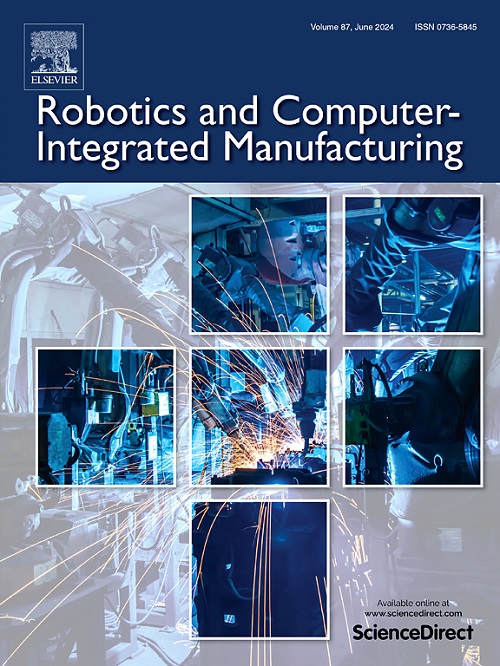Physics-based simulation framework for Digital Twin applications: Machine parameter tuning for handling of lumber in the wood industry
IF 11.4
1区 计算机科学
Q1 COMPUTER SCIENCE, INTERDISCIPLINARY APPLICATIONS
引用次数: 0
Abstract
Tuning the operational parameters of complex handling machines involves a complex interplay of variables impacting the performance and reliability of the equipment and the processes being executed. By integrating advanced simulation tools in DTs architectures, manufacturers can predict and analyse the performance of machines under various settings and scenarios. This paper proposes a physics-based simulation framework designed for offline optimisation of machine parameters and for integration in Digital Twin applications to explore the configuration space of machine parameters for their selection and fine-tuning. The framework enables virtual exploration of the parameter space to identify optimal parameter settings in terms of productivity and stability for both design-phase analysis and machine setup optimisation. While developed as a simulation component suitable for integration within Digital Twin architectures, the current implementation operates independently of real-time data integration. A case study from the wood industry demonstrates the application and validation of the approach under realistic operational scenarios, showing the framework’s potential for deployment in Digital Twin systems.
数字孪生应用的基于物理的模拟框架:木材工业中处理木材的机器参数调整
调整复杂搬运机器的操作参数涉及影响设备和正在执行的过程的性能和可靠性的变量的复杂相互作用。通过在DTs架构中集成先进的仿真工具,制造商可以预测和分析机器在各种设置和场景下的性能。本文提出了一种基于物理的仿真框架,用于机器参数的离线优化和集成在数字孪生应用中,以探索机器参数的配置空间,以进行选择和微调。该框架允许对参数空间进行虚拟探索,以确定设计阶段分析和机器设置优化的生产率和稳定性方面的最佳参数设置。虽然作为适合集成在数字孪生体系结构中的模拟组件开发,但当前的实现独立于实时数据集成。木材行业的一个案例研究展示了该方法在实际操作场景下的应用和验证,展示了该框架在数字孪生系统中部署的潜力。
本文章由计算机程序翻译,如有差异,请以英文原文为准。
求助全文
约1分钟内获得全文
求助全文
来源期刊
CiteScore
24.10
自引率
13.50%
发文量
160
审稿时长
50 days
期刊介绍:
The journal, Robotics and Computer-Integrated Manufacturing, focuses on sharing research applications that contribute to the development of new or enhanced robotics, manufacturing technologies, and innovative manufacturing strategies that are relevant to industry. Papers that combine theory and experimental validation are preferred, while review papers on current robotics and manufacturing issues are also considered. However, papers on traditional machining processes, modeling and simulation, supply chain management, and resource optimization are generally not within the scope of the journal, as there are more appropriate journals for these topics. Similarly, papers that are overly theoretical or mathematical will be directed to other suitable journals. The journal welcomes original papers in areas such as industrial robotics, human-robot collaboration in manufacturing, cloud-based manufacturing, cyber-physical production systems, big data analytics in manufacturing, smart mechatronics, machine learning, adaptive and sustainable manufacturing, and other fields involving unique manufacturing technologies.

 求助内容:
求助内容: 应助结果提醒方式:
应助结果提醒方式:


